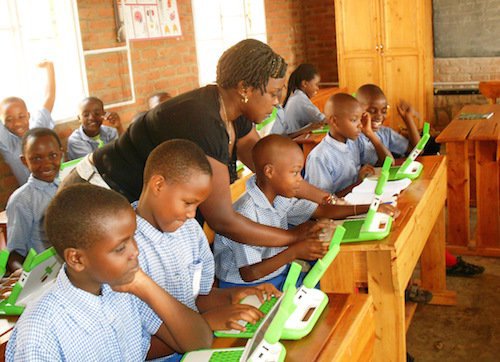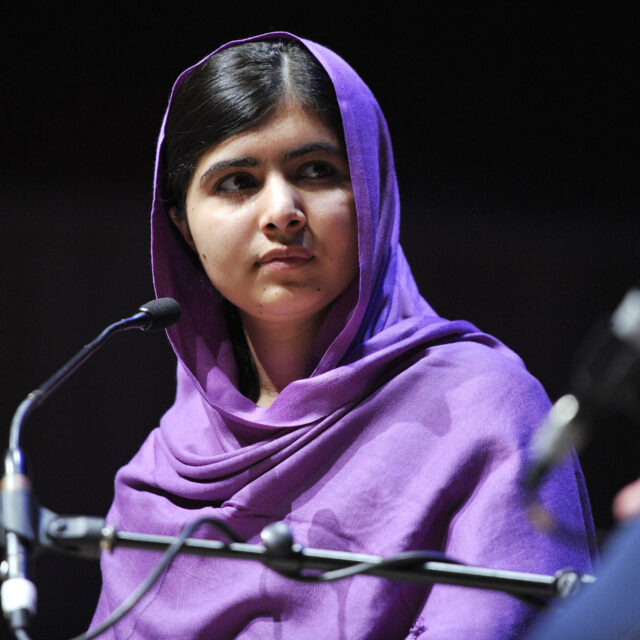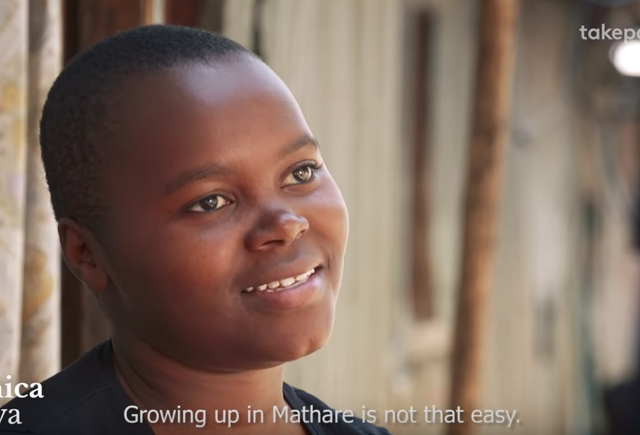By Celeste Mergens, founder and CEO of Days for Girls
Education is a big deal for everyone. However, access to education is still a problem for millions around the world, especially girls. A lot of things stand in the way between a girl and a classroom. In Sub-Saharan Africa, only 2 out of 35 countries have the same number of boys and girls in school. This matters for everyone, because educating girls can improve health for mothers and children, lowers HIV infection rates, increases countries’ GDP, and reduces hunger.
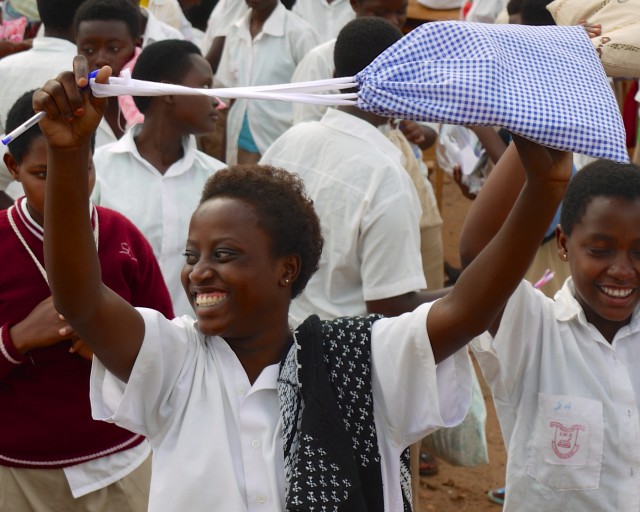
Photo credit: Days for Girls
Many things impact school attendance throughout the world, but menstrual hygiene has a huge impact on education. In Kenya alone, UNESCO estimates that 2.2 million girls, or approximately 50 percent school-age girls do not have access to sanitary pads. This can not only cause girls to miss valuable school days, but may cause them to hold back from participating, because of embarrassment and fear of leaking. One study in Ghana showed that 98.4% of girls felt better able to concentrate in school while wearing pads during their periods. One 7th grade girl in Kenya explained, “The girl with the period is the one to hang her head.”
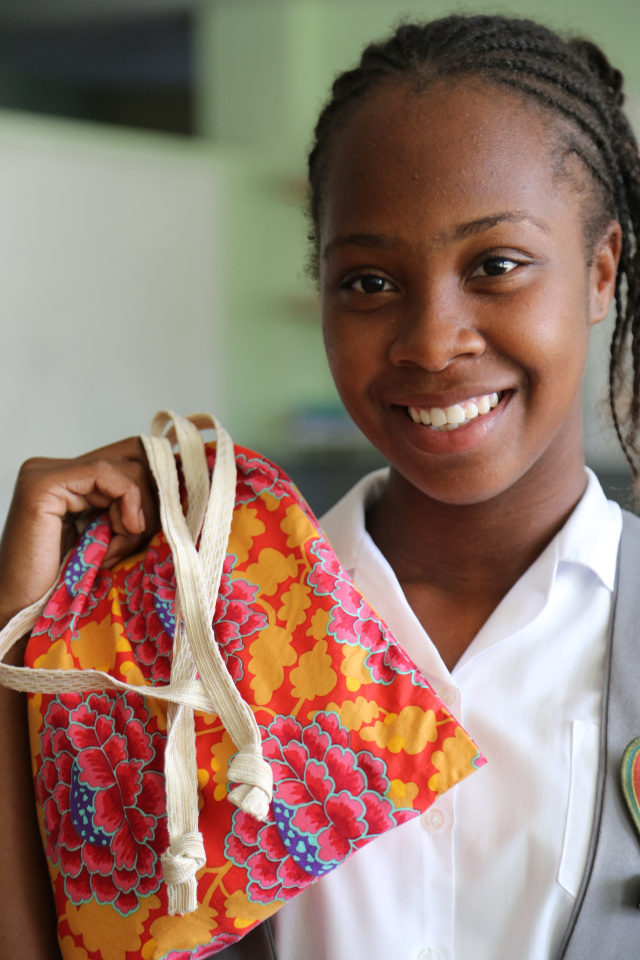
A Jamaican student with her Days for Girls Kit. (Photo credit: Days for Girls)
Days for Girls is working to improve school attendance around the world by providing washable sanitary pads and community-led women’s health education. Since 2008, Days for Girls has distributed more than 300,000 washable pads to women and girls in 87 countries, including the United States. Washable pads are a great environmentally-sustainable solution, and a cost-friendly one, as well. This is essential anywhere that a family has to choose between food and hygiene, including in the USA, where feminine hygiene is taxed as a luxury item and food stamps don’t cover pads.
Each Days for Girls Kit lasts for two to four years, can be washed with very little water, and is culturally appropriate in a wide variety of settings. The Days for Girls Kit has gone through 27 different iterations, each informed by feedback from women and girls across the world.
When you are left without a solution to something that your community sees as shameful and unclean, something tied to your basic biology, it is easy to see how that perpetuates the gender gap in education. But menstruation is about all of us. After all, without periods, there would be no people. What if menstruation were no longer a big deal in our world? We know that when girls know their value, have greater opportunity and the dignity of a solution that opens doors to more access to education, the result for the entire community is a big leap forward.
But we can break the cycle of shame and loss that results from a lack of menstrual hygiene options. Providing hygiene solutions to every girl is truly achievable in our lifetime. We can, and should do this, for “Every Girl. Everywhere. Period.”
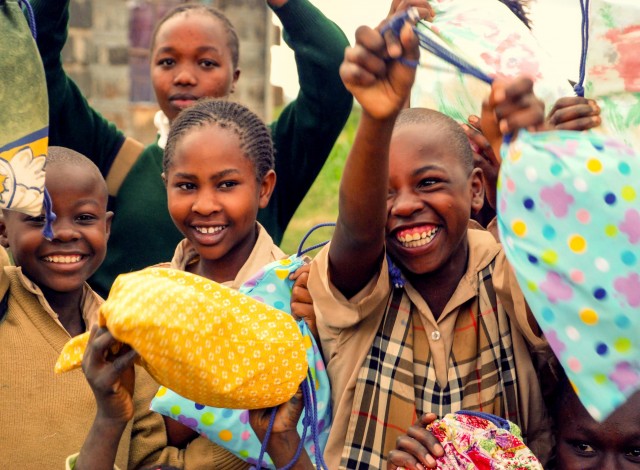
Girls in Kenya hold up their Days for Girls Kits. (Photo credit: Days for Girls)
If you would like to join the movement for “Every Girl,” Days for Girls invites you to join the #5MoreDays campaign. For many girls and women around the world, five days of opportunity are missed every month because of a lack of sustainable menstrual solutions girls can count on. You can help girls go to school, too: Spread awareness by sharing on social media what you would do with #5MoreDays every month. Would you learn a new language? Keep a plant alive for more than six months? Climb all the highest peaks? The possibilities are limitless. Learn more about how you can help at #5MoreDays.
Your voice adds up to a huge amount of change, ensuring more girls across the world can pursue their education without bounds.
Celeste Mergens founded Days for Girls during a trip to Kenya in 2008, when she discovered through discussions with young women that menstrual hygiene was a huge challenge. Just seven years later, Days for Girls empowers women and girls in 87 countries on six continents. Days for Girls has been featured in O Magazine, Forbes, and was recently named a Huffington Post “Next Ten” organization positioned to change the world in the next decade.

